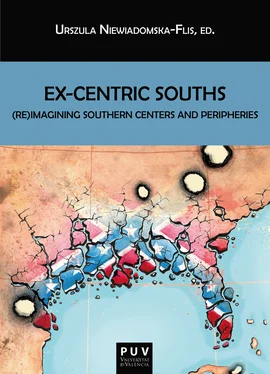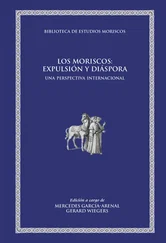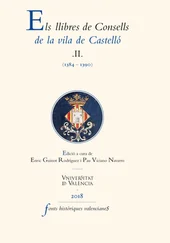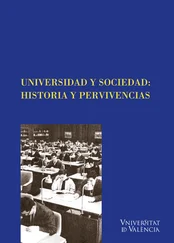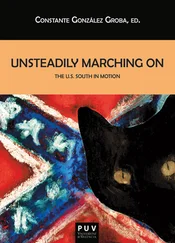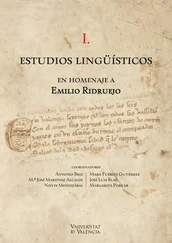The novel’s domestic side centers on two friends, the southerner, Genevieve, and the northerner, Mabel, reunited on the family plantation of the former on the coast of Mississippi. Having attended the Moravian Institute in Bethlehem, PA, 3 together with Mabel, Genevieve appears in the novel as a southerner who knows the northern life maybe even more than the male circle surrounding her. Thus, when her lover Ralph Dudley and her friend Eugene ridicule her enthusiasm about a northerner’s visit, she dismisses their remarks as childish, as does the narrative. This small anecdote in the narrative functions in a multilayered way that implies a male disbelief for the sincerity of female friendship and indicates a meaningless dislike for the North by the southerners who do not know their sister region well enough. Indeed, once Mabel arrives, both Eugene and Ralph become astonished by her intellect and beauty.
Overshadowing Genevieve’s excitement by her friend’s visit is the anticipation of the upcoming filibustering expedition to Cuba, which her suitor Ralph is also joining. By the mid-century, Cuba appeared to most southerners as the solution to their anxieties caused by the recent emancipation movements across the hemisphere. The island was one of the remaining slaveholding locations in the Americas and an important port for the slave-labor economy and illegal slave trade. Securing Cuba from Spanish rule and, thus, avoiding a possible abolition of slavery on the island occupied the minds of many proponents of slavery in the US. López’s filibustering expeditions to Cuba were among the many antebellum US attempts to annex or to liberate Cuba, like the Ostend Manifesto of 1854. López found supporters both in the North and the South – even though his expeditions have gained a reputation as a southern ambition. Both López, and the filibusters that followed him, had an explicitly expansionist agenda to annex the island as a slaveholding state to the US; yet their supporters also included those who believed that liberating the island as an independent country would suffice in securing the future of slavery in the hemisphere. 4
In the following it will be argued that Holcombe’s novel presents the filibustering expeditions as a non-annexationist endeavor. In a racialized fashion that regards the Cuban Creoles as superior to black people yet inferior to white southerners, and incapable of attaining their own liberation alone, the novel claims a patriotic white US American duty to liberate the island. It will be demonstrated that, in accordance with the abovementioned significance of the island for the slaveholding communities, the novel conceptualizes liberty in a way that includes slavery, standing in stark contrast to Livermore’s narrative. In the domestic background, on the other hand, the expedition is discussed as a US American rather than a sectional concern, and a secure position for the slave economy in the union is established.
Among the many protagonists of the novel, Genevieve appears as the single character who does not support López’s expedition to Cuba. While the narrative grants Genevieve rational arguments for her anti-filibusterism, as other scholars have demonstrated, her disapproval is often reduced to a selfish and feminine attempt to keep her lover away from the dangers of warfare. Unlike other characters, Genevieve contemplates the dangers of undertaking such an enterprise with fewer than five hundred people and the implications of acting against President Taylor’s 1849 proclamation which prohibited filibustering. Moreover, arguing that one’s patriotic duty is to her own country and its laws, she opposes Ralph’s suggestion that the expedition is a noble and patriotic mission. In this sense, Mabel and Genevieve are portrayed in strong contrast to one another. Greenberg suggests that Mabel, although a northerner, “is as strongly pro-filibustering as any man in the novel, and she makes it clear that only the most risktaking filibuster could win her heart” (224). When she and Eugene fall in love with each other, she encourages her lover to join the expedition at the risk of her own happiness. Against Mabel’s fiery rhetoric in favor of the filibusters, Genevieve’s portrayal as a woman who cannot comprehend what Greenberg calls the “male honor” that is embedded in the upcoming expedition becomes even more accentuated.
The friendship of Mabel and Genevieve and their conflicting stance with regard to filibusterism have significant implications for the novel’s imagery of the South. The ardent support for filibusterism from Mabel’s side and the lack of support from Genevieve function as a counterproof for the presentation of the expeditions as a solely southern matter, and allow the narrative to demonstrate the existence of opposition and support for filibusters both in the North and the South at the same time. But more importantly, the disagreement of the girls over this subject never serves to depict their friendship in conflict. Instead, when their suitors eventually leave for the expedition, a sense of increased solidarity arises between these two female friends. While Genevieve’s disapproval of the expedition does not seem to vanish, she begins sympathizing with the filibusters on an emotional level once her lover and male friends go to Cuba to fight for the island’s liberation. Thus, the girls find themselves in the hinterland of the expedition in the South united by a common concern for the future of their loved ones and the island. This shared apprehension hints at a unionist sentiment that anticipates a common and nation-wide concern for the well-being of fighting men, as it would be seen in times of national warfare.
The friendship of Mabel and Genevieve that remains unharmed by the disagreement over the subject of filibusterism – an uninterrupted domestic peace on a small scale – points at a desire for an undisturbed union on a larger scale: an analysis that has long escaped the attention of scholars who, distracted by Holcombe’s later secessionism, assumed a secessionist undertone in FFC , as well. Indeed, the novel ties the destinies of the northern and southern regions of the US together with the analogy that it creates through this friendship. Although Eugene dies in Cuba during the unsuccessful expedition, the narrative still prepares a happy ending for Mabel in the South through her marriage to another southern filibuster named Stuart Raymond. By setting up Genevieve and Ralph’s wedding on the same day, the narrative ties Mabel’s happiness not just to the South but to the happiness of Genevieve. In effect, the friendship between these two young women is reinforced with strongly connected futures. In this sense, the novel’s previous response to the mockeries of young male characters about the sincerity of female friendship can be read as a response to the cynicism of sectionalists who regarded a union between the two regions as unlikely or disingenuous.
However, the narrative does not put the southern values that it promotes at risk in its unionist sentiment. The first and foremost of these values is undoubtedly slavocracy. The novel makes its pro-slavery argument through its depiction of the slave characters as submissive and happy in their degraded condition. Lowe writes that “the blacks [in Holcombe’s novel] are [depicted as] naively comic but also strangely wise, and all of them are dedicated to their ‘white folks’” in accordance with the norms of antebellum southern literature. Burton and Burton highlight the exclusion of black men from the cult of male honor even though they fight next to white men in the Mexican War, as well as in the Cuban expedition (320). Instead, according to the narrative, they belong to the South’s “peculiar institution” and their appearance in these battles is only an extension of their loyalty to their white masters. The narrator’s voice interrupts the plot from time to time to justify slavery with remarks such as “Ah! how I wish some honest, but misjudging north-born friends we have, could or would take the trouble to see the many neat and comfortable settlements on the beautiful plantations of the south” (Hardimann v). The northerner Mabel comes in handy at this point: she feels at home surrounded by enslaved people on the southern plantation, as a person aggrandizing war for the liberty of others.
Читать дальше
